- Home
- Andy McNab
Liberation day Page 2
Liberation day Read online
Page 2
As the frame charges cut a two-foot-square hole in each tank, the fuel would spew out and be contained in the bung. The ignited OBIs would float on top of the spillage, burning in sequence along the daisy chain, so that we had constant heat and constant flame, which would eventually ignite the lake of fuel beneath them. We knew that the kerosene 28 fuel oil rising in the bung would ignite when the second of the four OBIs ignited, which should happen as the fuel level reached just less than halfway up the bung wall. But we wanted to do more than just ignite the fuel within the bung: we wanted fire everywhere.
The burning fuel would disgorge through the cut-out section in the wall and out onto the ground like lava from a volcano. The ground sloped, toward the target house. As soon as Lotfi had shown me the sketch maps from his recce, I’d seen that we could cut the house off from the road with a barrier of flame. I hoped I was right; two hundred policemen lived in barracks just three miles along the road to Oran, and if they were called to the scene we didn’t want to become their new best friends.
Just as important, we could make what happened tonight look like a local job—an attack from one of the many fundamentalist groups that had waged war on each other here for years. That was why we’d had to make sure the equipment was homemade, why all our weapons were of Russian manufacture, and our clothing of local origin. The traser might not be regular Islamic fundamentalist issue, but if anyone got close enough to me to notice my watch, then I really was in the shit, so what did it matter? In less than two hours from now, Zeralda would be dead, and the finger of blame would be pointing at Algeria’s very own Islamic extremists, who were still making this the world’s most dangerous vacation spot.
They didn’t like anyone unless he was one of their own. We hoped that our attack would be blamed on the GIA, the Armed Islamic Group. They were probably the cruelest and most screwed-up bunch I’d ever come across. These guys had been trained and battle-hardened in places like Afghanistan, where they’d fought with the mujahadeen against the Russians. After that, they’d fought in Chechnya, and then in Bosnia and anywhere else they felt Muslims were getting fucked over. Now they were back in Algeria—and this time it was personal. They wanted an Islamic state with the Qur’an as its constitution, and they wanted it today. In the eyes of these people, even OBL (Osama Bin Laden) was a wimp. In 1994, in a grim precursor of attacks to come, GIA hijacked an Air France plane in Algiers, intending to crash it in the middle of Paris. It would have worked if it hadn’t been for French antiterrorist forces attacking the plane as it refueled, killing them all.
Unlike me, all the equipment in my bergen was dry. I peeled off my dry bag, and immediately felt colder as the air started to attack my wet clothes. Too bad, there was nothing I could do about it. I checked chamber on my Russian Makharov pistol, pulling back the topslide just a fraction and making sure, for maybe the fourth and last time on this job, that the round was just exposed as it sat in the chamber ready to be fired. I glanced to the side to see the other two doing the same. I let the topslide return until it was home tight before applying safe with my thumb, then thrust the pistol into the internal holster that I’d tucked into the front of my pants.
Lotfi was in a good mood. “Your gun wet too?”
I nodded slowly at his joke and whispered back, as I shouldered my bergen, “Pistol, it’s a pistol or weapon. Never, ever a gun.”
He smiled back and didn’t reply. He didn’t have to: he’d known it would get me riled.
I made my final check: my two mags were still correctly placed in the double mag holder on my left hip. They were facing up in the thick bands of black elastic that held them onto my belt, with the rounds facing forward. That way I would pull down on a mag to release it and they would be facing the right way to slam into the pistol.
Everyone was now poised to go, but Lotfi still checked—“Ready?”—like a tour guide at the airport with a group trip, making everyone show their passports for the tenth time. We all nodded, and he led the way up to the high ground. I fell in just behind him.
Lotfi was the one taking us on target because he was the only one who had been ashore and carried out a CTR (close target recce). Besides, he was the one in charge: I was here as the guest European, soon to be American, terrorist.
There was a gentle rise of about forty yards from the tip of the peninsula where we’d landed to the target area. We zigzagged over sand and rock. It was good to get moving so I could warm up a little.
We stopped just before the flat ground and sat and waited for a vehicle to make its way along the road. Lotfi checked it out. No one said it, but we were all worried about the police being stationed so close, and whether, because of the terrorist situation here, they constantly patrolled their immediate area for security. I was still happy to stop and catch my breath. My nose was starting to run a little.
Lotfi dropped down below the ledge and whispered in Arabic to Hubba-Hubba before coming to me: “Just a car, no police yet.”
The wet T-shirt under my sweatshirt was a bit warmer now, but it was just as uncomfortable. So what? It wouldn’t be long before it was black tea and diesel fumes again, and, for about the first time in my life, I’d be proactively planning a future.
I pulled back my sweatshirt sleeve and glanced down at my traser. 00:58. I thought of Mr. and Mrs. B. Just like the Bouteflikas, they too were probably having a wash and comb while they discussed what on earth they were going to talk about over the Tex Mex. Probably something like, “Oh, I hear you have lots of gasoline in your country? We wouldn’t mind some of that, instead of you giving it to the Italians to fill up their Fiats. And, oh, by the way, there’ll be one Algerian fewer for you to govern when you get back. But don’t worry, he was a bad guy.”
As the sound of the vehicle faded in the direction of Oran, we all raised our heads slowly above the lip to scan the rock and sandy ground. The constant noise of crickets, or whatever they called them here, rattled into the night.
The fuel compound was an oasis of yellow light and bright enough to make me squint until my eyes adjusted. It was just under two hundred yards to my half-left. From my perspective the tanks were sitting side by side, surrounded by the bung. To the right of them was the not-so-neat row of fuel trucks.
The perimeter of the compound was guarded by a ten-foot-high chain-link fence, sagging in places where the trucks had backed into it over the years.
In the far corner of the compound, by the gate that faced the road, was the security hut. It was no more than a large garden shed. The security was for fire watch just as much as for stopping the trucks and fuel disappearing during the night; the depot had no automatic fire system in the event of a leak or explosion. Lotfi told us there was a solitary guy sitting inside, and if the whole thing ignited it would presumably be his job to get on the phone.
That was good for us, because it meant we didn’t have to spend time neutralizing any fire-fighting apparatus or alarms. What was bad was the police barracks. A complete fuck-up on our side was only a phone call and three miles away. If we got caught it would be serious shit. Algeria wasn’t exactly known for upholding human rights, no one would be coming to help us, no matter what we said, and terrorists were routinely whipped to death in this neck of the woods.
3
T he target house was to the right of us, and closer than the compound. The wall that surrounded it was a large, square, high-sided construction of plastered brick, painted a color that had once been cream. It was built very much in the Muslim tradition of architecture, for privacy. The main door faced the fuel tanks, and we knew from the satellite that it was rarely used. I couldn’t even see it from where I was, because the lights in the compound weren’t strong enough. From the shots Lotfi had taken during the CTR, I knew it consisted of a set of large, dark, wooden double doors rising to an apex, studded and decorated with wrought iron. The pictures had also shown a modern shutter-type garage door at the side, facing away from us toward the road. A dirt track connected it with the main drag.<
br />
Inside the high protection was a long, low building. It wasn’t exactly palatial, but showed that the fuel and teabag business paid Zeralda well enough for him to have his own little playground.
Double doors from quite a lot of the rooms opened onto a series of tiled courtyards decorated with plants and fountains, but what the satellite photographs hadn’t been able to show us was which room was which. That didn’t really matter, though. The house wasn’t that big and it was all on one floor, so it shouldn’t take us long to find where Zeralda was doing his entertaining.
The paved road flanked the far side of these two areas and formed the base of the triangular peninsula.
Lotfi moved back down into the dead ground and started to scramble along in the darkness to his left, just below the lip. As we followed, two cars raced along the road, blowing their horns at each other in rhythmic blasts before eventually disappearing into the darkness. I’d read that eighty percent of men under the age of thirty were jobless in this country and inflation was in high double figures. How anybody could afford fast cars was beyond me. I could only just about afford my motorbike.
We got level with the tanks and moved up to the lip of the high ground. Hubba-Hubba took off his bergen and fished out the wire cutters and a two-foot square of red velvet curtain material, while we put on and adjusted the black-and-white-check shemags that would hide our faces when we hit the hut. I wouldn’t be taking part directly because of my skin color and blue eyes. I would only come into the equation when the other two had located Zeralda. It wouldn’t matter that he saw me.
When Hubba-Hubba got his bergen back on and his shemag around his head, we checked each other again as Lotfi drew his pistol and did his tour guide routine, with a nod to each of us as we copied.
Breaking the operation down into stages, so that people knew exactly what to do and when to do it, made things easier for me. These were good men, but I couldn’t trust my life with people I didn’t know very well and whose skills, beyond the specifics of this operation, I wasn’t sure about.
Following Lotfi, with me now at the rear, we moved toward the fence line. It was pointless running or trying to avoid being in the open for the thirty or so yards: it was just flat ground and the light in the compound hadn’t hit us directly yet as the arc lights were facing into the compound, not out. We would get into that light spill before long, and soon after that we’d be attacking the hut, so hell, it didn’t really matter. There was no other way of crossing the open ground anyway.
There came a point where, bent over, as we tried instinctively to make ourselves smaller, we caught the full glare of the four arc lights set on high steel posts at each corner of the compound. A mass of small flying things had been drawn to the pools of light and buzzed around them.
I could hear the rustle of my pants as my wet legs rubbed together. I kept my mouth open to cut down on the sound of my breathing. It wasn’t going to compromise us, but doing everything possible to keep noise to a minimum and make this job work made me feel better. The only other sounds were of their sneakers moving over the rocky ground, and the rhythmic scrape of the nylon bergens over the chirp of the invisible crickets. My face soon became wet and cold as I breathed against the shemag.
We got to the fence line behind the shed. There were no windows facing us, just sunbaked wooden cladding no more than three feet away.
I could hear someone inside, shouting grumpily in French. “Oui, oui, d’accord.” At the same time there was a blast of monotone Arabic from a TV set.
Lotfi held the red velvet over the bottom of the fence and Hubba-Hubba got to work with his cutters. He cut the wire through the velvet, moving upward in a vertical line. Lotfi repositioned the velvet each time, the two men working like clockwork toys, not looking remotely concerned about the world around them. That was my job, to watch and listen to the sounds coming from the shed in case its occupant was alerted by the smothered ping each time a strand of chain-link gave way.
The telephone line snaked into the compound from one of the concrete posts that followed the road, which looked like a strip of liqorice running left and right. There was a sign, in both Arabic and English, to be careful of the bend. I knew that if I went to the right I would hit Oran about ten miles away, and if I went left I would pass Cap Ferrat and eventually hit Algiers, the capital, about four hundred miles to the east.
Hubba-Hubba and Lotfi finished cutting the vertical line as the one-sided conversation continued inside the shed, then carefully pulled the two sides apart to create a triangle. I eased my way slowly through, so my bergen wouldn’t snag. I got my fingers through Lotfi’s side of the fence to keep it in position and he followed suit, taking hold of Hubba-Hubba’s side while he packed the cutting gear. When he was through as well, we eased the fence back into place.
We put our bergens on the ground behind the shed, to the accompaniment of the monotonous Arabic TV voice, and the old guy still babbling in French.
It flashed through my mind that I had no idea what had been happening in Afghanistan this past week. Was the U.S. still bombing? Had troops gone in and dug the Taliban out of their caves? Having been so totally focused on the job in the mining camp and then stuck in the submarine, I didn’t have a clue if OBL was dead or alive.
We used the light to make final adjustments to each other’s shemags.
Everyone carefully checked chamber for the last time. They were becoming like me, paranoid that they were going to pull a trigger one day and just get a dead man’s click because the topslide hadn’t picked the round up due to the mag not being fully home.
Lotfi was hunched down and bouncing on the balls of his feet. He just wanted to get on with it and hated the wait. Hubba-Hubba looked as if he were at the starting blocks and unconsciously went to bite his thumbnail, only to be prevented by the shemag. There was nothing we could do but wait until the old guy had finished his call; we weren’t going to burst in halfway through a conversation. I listened to the French patter, the TV, the buzz of the mosquito things around the lights, and our breathing through the cotton of the shemags. There wasn’t even the hint of a breeze to jumble the noises together.
Less than a minute later, the guard stopped talking and the phone went down with an old-style ring of a bell. Lotfi bounced up to full height and checked Hubba-Hubba was backing him. He looked down at me and we nodded in time before they disappeared around the corner without a word. I followed, but stayed out of the way as Lotfi pulled open the door; the TV commentator was momentarily interrupted by a single shouted instruction and the sort of strangulated pleas you make to two weapon-pointing Arabs in shemags. I saw a sixty-something guy in baggy, well-worn pants and a tattered brown-check jacket, drop a cigarette from between his thumb and forefinger before falling to his knees and starting to beg for his life. His eyes were as big as saucers, his hands upturned to the sky in the hope that Allah would sort this whole thing out.
Hubba-Hubba stuck the muzzle of his Makharov into the skin at the top of the old guy’s balding head and walked around him using the weapon as a pivot stick. He reached for the phone and ripped it from its plug. It fell to the floor with one final ring, the noise blending with the scrape of plastic-soled shoes on the raised wooden floor as they dragged him over to a folding wooden chair.
I could see that he had been watching Al Jazeera, the news network. The TV was black-and-white, and the coat-hanger antenna wasn’t exactly state-of-the-art, but I could still make out the hazy nightscope pictures of Kandahar getting the message from the U.S. Air Force as tracer streamed uselessly into the air.
The old guy was getting hysterical now, and there were lots of shouts and pistols aimed his way. I guessed they were telling him, “Don’t move, camel-breath,” or whatever, but in any event it wasn’t long before he was wrapped up so well in duct tape he could have been a Christmas present.
The two of them walked out and closed the door behind them, and we retrieved the bergens. Things were looking good. “Train hard, fig
ht easy” had always been shoved down my throat, even as an infantry recruit in the 1970s, and it was certainly true tonight. The other half of the mantra, “Train easy, fight hard—and die,” I pushed to the back of my head.
We crossed the hard crust of sand that had been splashed with fuel over the years, and compressed by boots and tires, heading for the tanks no more than fifty yards away. The trucks were to my left, dirty festering old things with rust streaks down the sides of their tanks from years of spillage. If the sand and dust now stuck to them were washed off, they would probably fall apart.
I clambered over the bung, feeling safe enough to pull off the shemag as the other two got on with their tasks. After I’d extracted the four OBIs, I checked at the bottom of my bergen for the nine-inch butcher’s knife and pair of thick black rubber gloves that came up to my elbows. They were the sort that vets use when they stick their arm up the rear end of large animals. I knew they were there, but always liked to check such things. Next out was the thirty-meter spool of safety fuse, looking a bit like a reel of green clothesline. All the gear we were using was in metric measures, but I had been taught imperial. It had been a nightmare explaining things to the boys during rehearsals.
Lotfi and his pal, God, started to play stonemasons on the bung, taking a hammer and chisel to the elevation that faced the target house, which was hidden in darkness, no more than two hundred yards away. This was a problem because of the noise Lotfi was making. But, hell, there was no other way. He just had to take his time. But at least once the first block was out, it would be a lot easier to attack the mortar. It would have been quicker and safer, noise-wise, to blow a hole in the wall at the same time as the tanks were cut, but I couldn’t have been sure that the right amount of wall had been destroyed, allowing the fuel to gush out before it was ignited.

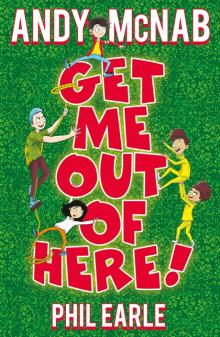 Get Me Out of Here!
Get Me Out of Here!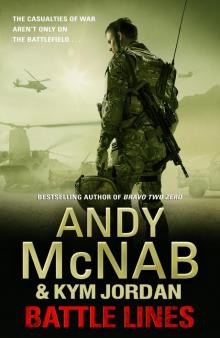 Battle Lines
Battle Lines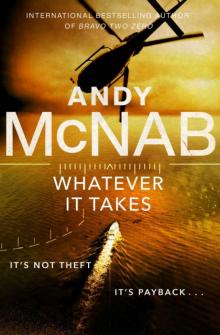 Whatever It Takes
Whatever It Takes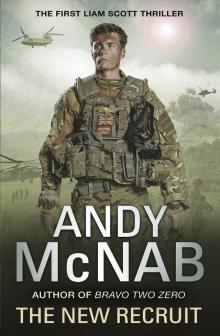 The New Recruit
The New Recruit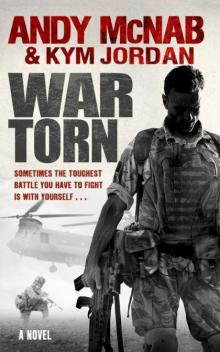 War Torn
War Torn Brute Force
Brute Force Crossfire
Crossfire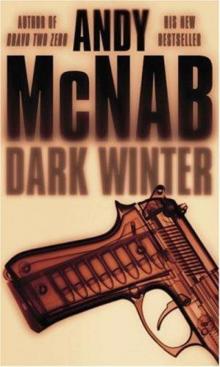 Dark Winter ns-6
Dark Winter ns-6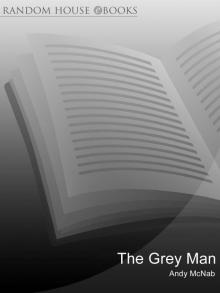 The Grey Man
The Grey Man Spoken from the Front
Spoken from the Front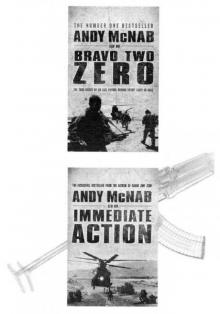 Meltdown
Meltdown Recoil
Recoil Nick Stone 1 - Remote Control.
Nick Stone 1 - Remote Control.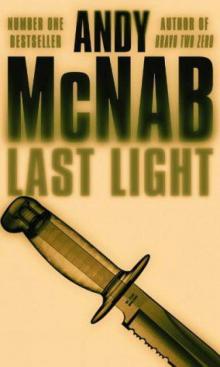 Last Light ns-4
Last Light ns-4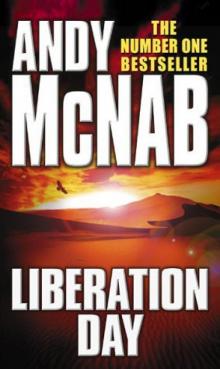 Liberation day
Liberation day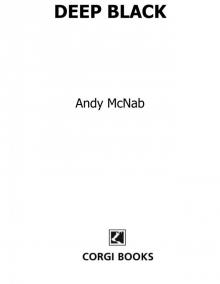 Deep Black
Deep Black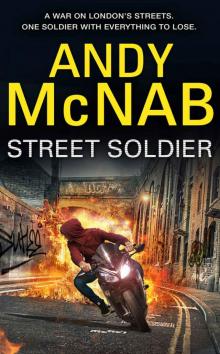 Street Soldier
Street Soldier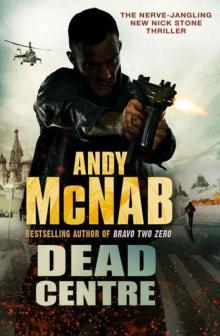 Dead Centre ns-14
Dead Centre ns-14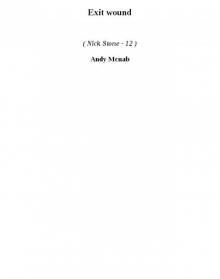 Exit wound ns-12
Exit wound ns-12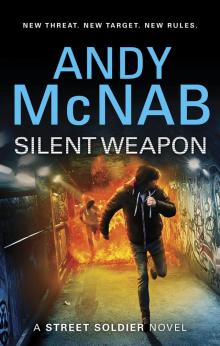 Silent Weapon
Silent Weapon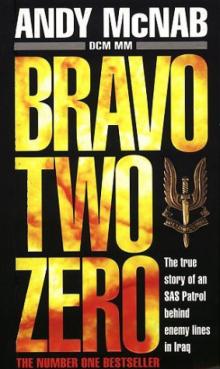 Bravo two zero
Bravo two zero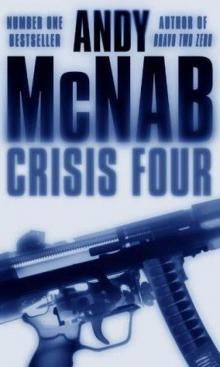 Crisis Four ns-2
Crisis Four ns-2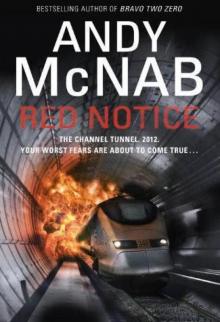 Red Notice
Red Notice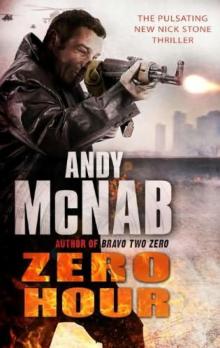 NS13 Zero Hour
NS13 Zero Hour Firewall
Firewall Last Light
Last Light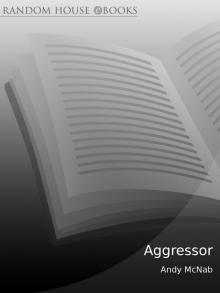 Aggressor
Aggressor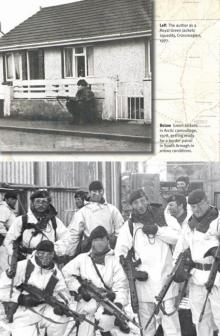 Seven Troop
Seven Troop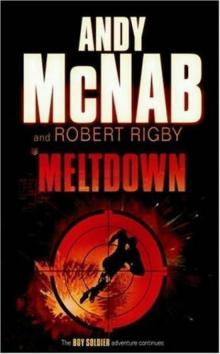 Meltdown bs-4
Meltdown bs-4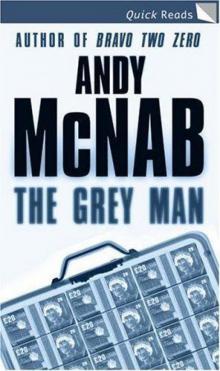 The Grey Man (quick reads)
The Grey Man (quick reads)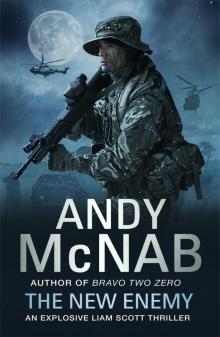 The New Enemy
The New Enemy Avenger
Avenger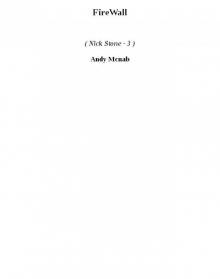 FireWall ns-3
FireWall ns-3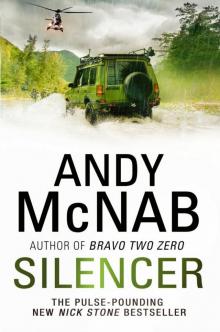 Silencer
Silencer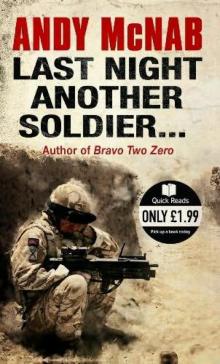 Last Night-Another Soldier…
Last Night-Another Soldier…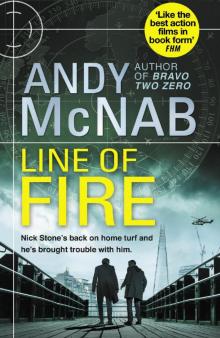 Line of Fire:
Line of Fire: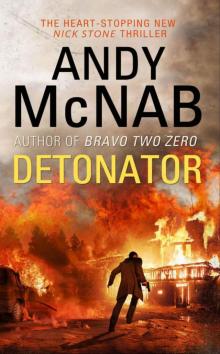 Detonator
Detonator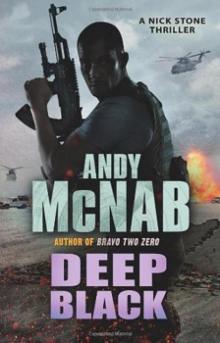 Deep Black ns-7
Deep Black ns-7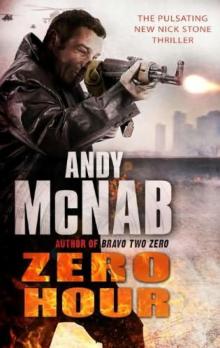 Zero Hour (2010) ns-13
Zero Hour (2010) ns-13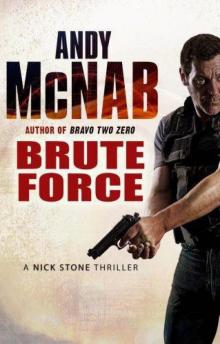 Brute Force ns-11
Brute Force ns-11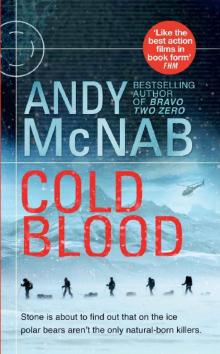 Cold Blood
Cold Blood Terminal Velocity
Terminal Velocity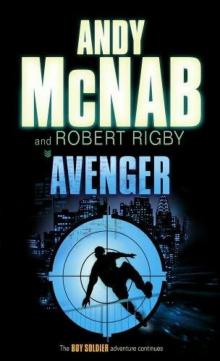 Avenger bs-3
Avenger bs-3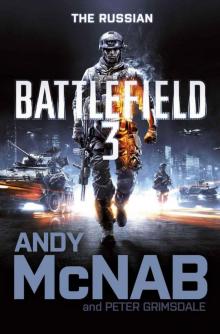 Battlefield 3: The Russian
Battlefield 3: The Russian DropZone
DropZone Zero Hour
Zero Hour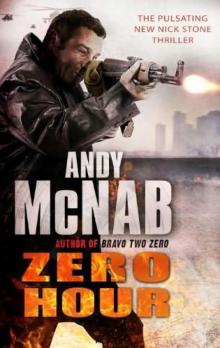 NS13 Zero Hour (2010)
NS13 Zero Hour (2010)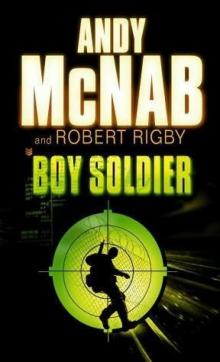 Boy soldier bs-1
Boy soldier bs-1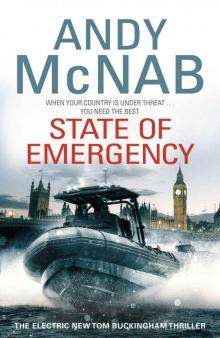 State Of Emergency: (Tom Buckingham Thriller 3)
State Of Emergency: (Tom Buckingham Thriller 3)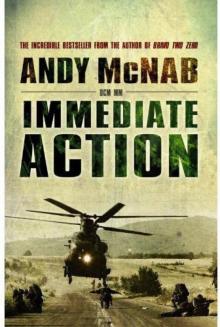 Immediate Action
Immediate Action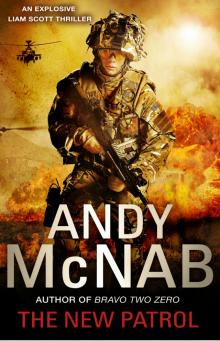 The New Patrol
The New Patrol Crisis Four
Crisis Four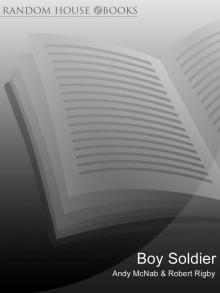 Boy Soldier
Boy Soldier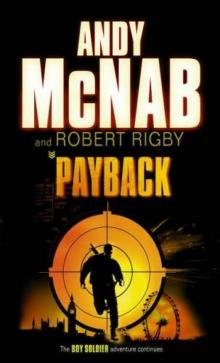 Payback bs-2
Payback bs-2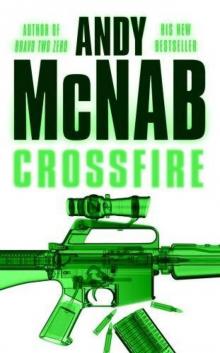 Crossfire ns-10
Crossfire ns-10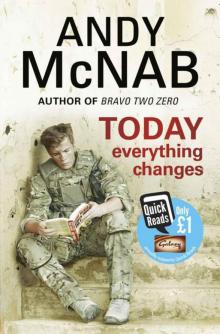 Today Everything Changes: Quick Read
Today Everything Changes: Quick Read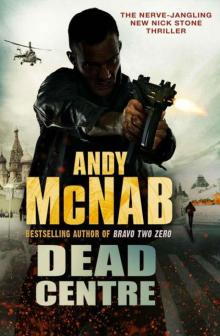 Dead Centre
Dead Centre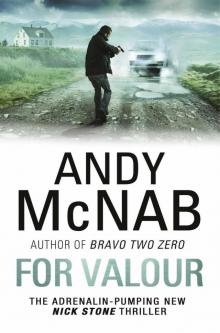 For Valour
For Valour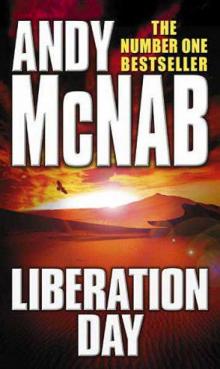 Liberation Day ns-5
Liberation Day ns-5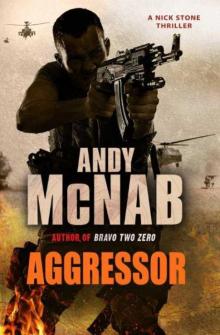 Aggressor ns-8
Aggressor ns-8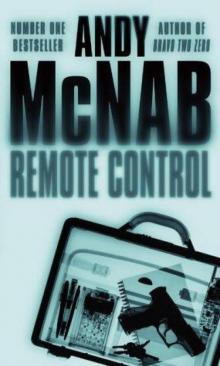 Remote Control ns-1
Remote Control ns-1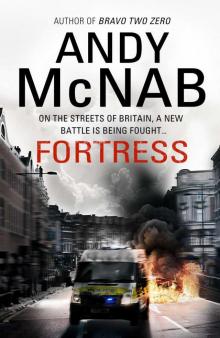 Fortress
Fortress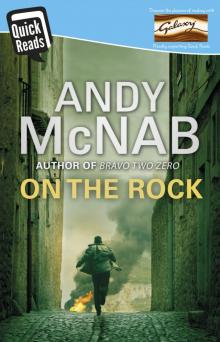 On the Rock
On the Rock Dark Winter
Dark Winter